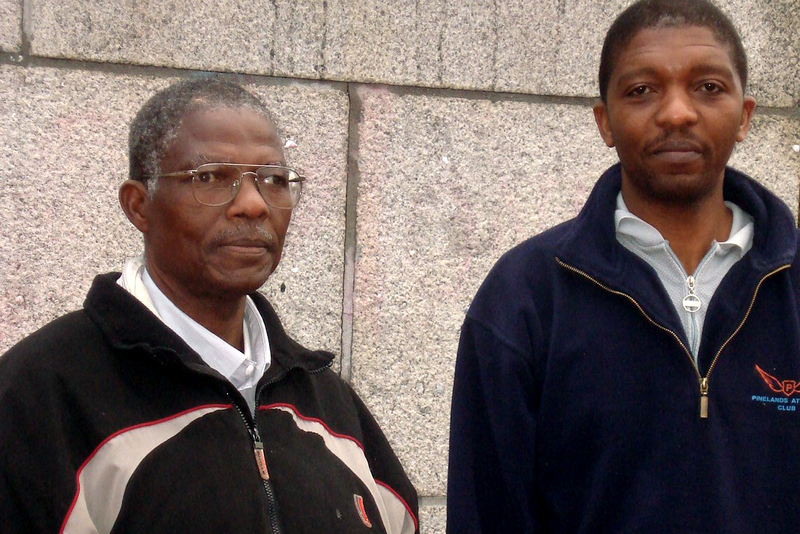Frank Matose – holding the fort in sociology
04 November 2021 | Story Robert Morrell. Photo Tammy Matose. Read time 5 min.
Frank Matose is currently co-Director of Environmental Humanities South, a funded interdisciplinary research initiative in the Faculty of Humanities. In 2015 Frank was a founder member of the Next Generation Professoriate (NGP). In 2018 he was promoted to associate professor in the Department of Sociology. In this story, he describes his experience of academic leadership.
Having been brought up by a school headmaster, administrative leadership was not something I was keen to take up given the dedication I witnessed in my formative years. My father, Jephitha Petros Matose, was a very organised, classic administrator and was driven by principles. He was deeply esteemed for his servant leadership. Servant leadership theory was developed Robert Greenleaf and proposes that the most effective leaders are those who are servants to people they serve. At the same time, because of his own upbringing, he also had a very caring and encouraging nature towards both colleagues and pupils, despite having this aura of formality and distance. I am pleased that I identify in my own academic practice with his caring side. I am not driven by order and structure.
After a period in the Department of Sociology when two colleagues shared the headship, I offered to step in. I wanted to serve the department and support my colleagues. I was enticed by the short-term nature of the assignment. As a result, from 1 July to 31 December 2021, I am in this position of facilitating the department as its acting head.
Baptism of Fire
The first month, July, was rather frenetic with the reconciliation of marks and onward submission onto the ‘system’. Our department has a large number of undergraduate students, so the sheer volume of work can seem overwhelming. My days were suddenly consumed entirely by administrative responsibilities with no space for thinking or writing about research work.
Performance appraisal cycles followed the submission of marks and then budgets and preparing for the new semester and the attendant recruitment of tutors and their training. One has to be relentless in keeping an eye on what is going on within the department. Heads of departments are so much the centre of the life and being of the academic project. They facilitate, manage and lead processes.
In subsequent months I settled down into the routine task and created my own way of discharging them. I was very grateful to be able to call on the substantive joint heads of our department for guidance and advice about matters that arise endlessly. My tenure has also involved a lot of recruitment, which is a privilege but at the same time a burden. Privilege in relation to facilitating the recruitment of key administrative staff as well as fill a lecturer position that we urgently needed to fill when a colleague resigned early in 2020. The burden is that recruitment comes with a lot of administrative responsibility and form-filling!
“The currency of headship is keeping a keen eye on the state of colleagues in the department, ensuring that all are coping under the remote teaching platform. This requires dedicating time each day to check in with key players.”
After experiencing this brief but hectic spell of leadership responsibility, how would I rate myself? I’d give myself a pass mark but I probably need to have more structure. This is a personal challenge because I have an ambivalent relationship with structure. I prefer to have a bit of spontaneity and surprise, even a bit of organized chaos. In order to be able, manage all the facets of the portfolio of headship effectively, without compromising some, routinized structure is something I am working on each day especially given that I still have my own big research projects making demands on my time.
What I had looked forward to, and my own personal incentive for taking up the role, was to be in a position to assist a cohort of younger members of staff in developing their career plans. Helping them to move up in the ‘system’. I consider this to be my own way of sharing what I have learnt from being a perennial member of the NGP programme. I have not managed to reach all members of staff but over time this will remain my goal. I intend having conversations with colleagues and offering myself as a mentor into the future.
 This work is licensed under a Creative Commons Attribution-NoDerivatives 4.0 International License.
This work is licensed under a Creative Commons Attribution-NoDerivatives 4.0 International License.
Please view the republishing articles page for more information.






